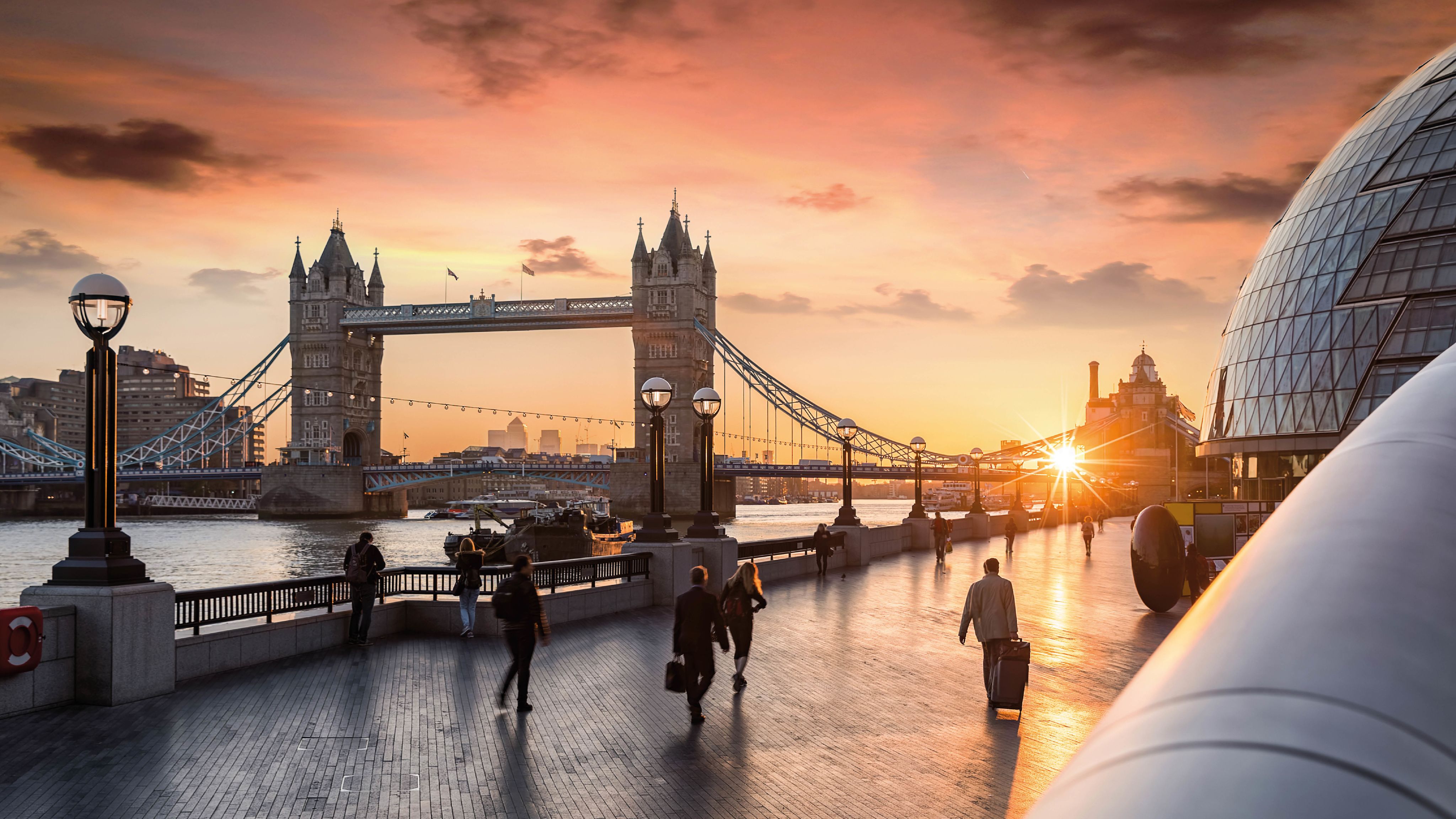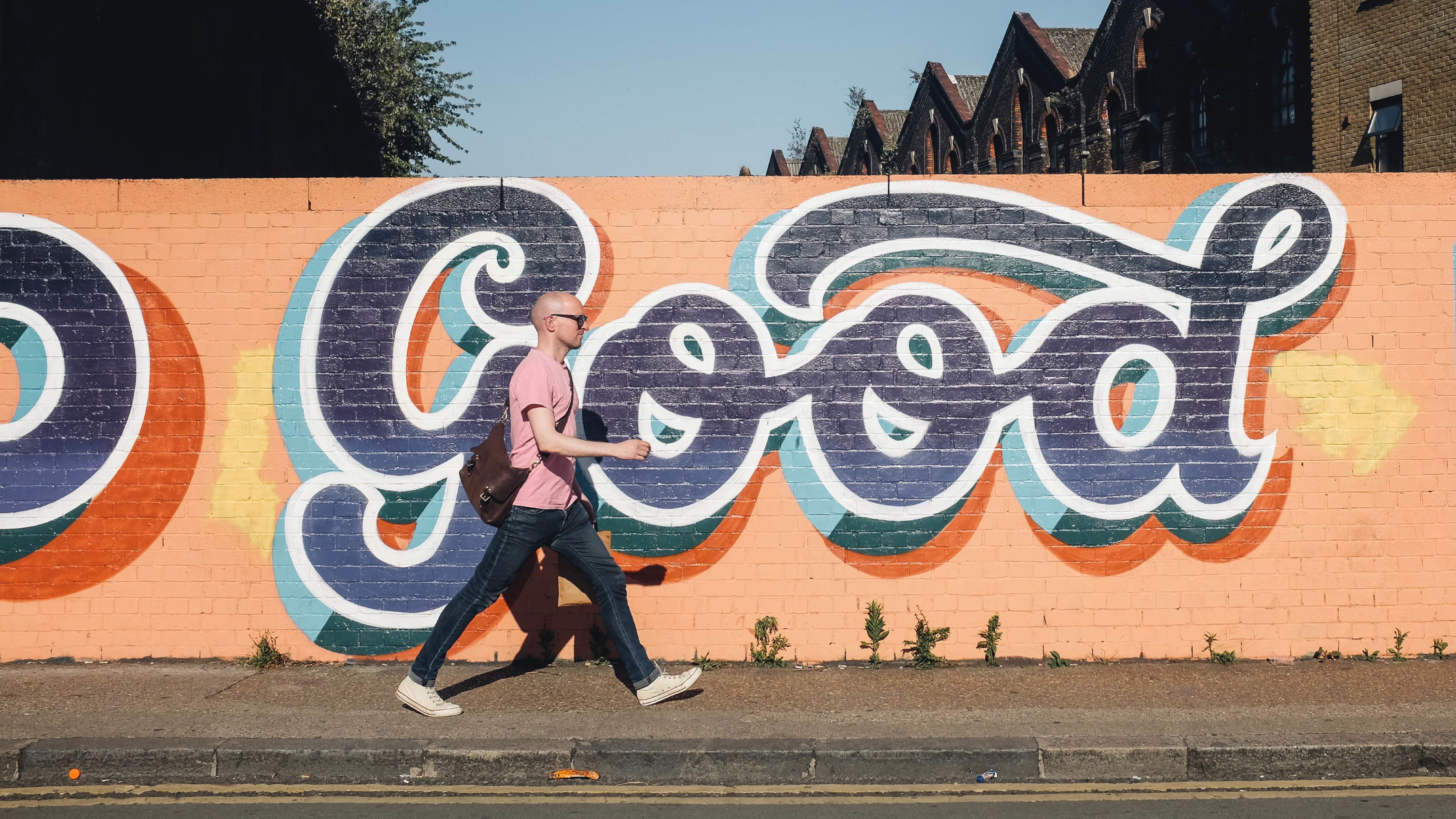A New Vision
for London

The capital’s future and how the University of London can play a role.
I can’t say my friends have generally taken much notice of my interest in cities or, in particular, in London. But since the beginning of the pandemic, that has changed. Again and again, people have asked me what I think COVID-19 will mean for cities or whether London can survive.
It’s a fair challenge. A good way of understanding the dynamics of human settlement is in terms of the benefits and disadvantages of density. If cities exist it’s because close human proximity makes life easier and richer – by living elbow-to-elbow city dwellers can share scarce resources, exchange goods and labour, and learn and create together. But proximity has always had its downside, including overcrowding, congestion, pollution, conflagration and yes, contagion. Infectious diseases have always been a particular challenge and through most of their history, life expectancy has been lower in cities than in surrounding countryside.
An experiment in remote working
Of course, progress in understanding how diseases are spread, advances in urban administration and infrastructure, and medical breakthroughs have, over the last 200 years or so, massively shifted the dynamics of density in favour of city living. This is the main reason why the world has urbanised so dramatically – more than two-thirds of us now live in urban environments.
There is good reason to wonder whether the pandemic might have changed this. It’s not just that COVID reminded us of our continued vulnerability to infectious disease. It’s also offered a forced and apparently successful experiment in remote working.
At first glance, London looks particularly vulnerable to these developments for at least three reasons. First, knowledge and service sectors loom large in the London economy, and these are the ones that can most easily be conducted remotely – the capital is full, in other words, of ‘knowledge workers’ able to do their jobs from home. Secondly, it has more commuters travelling longer distances than any UK, and probably any European, city – the gains from working from home are particularly great for these. Thirdly, the visitor economy, in the form of both tourists and business visitors, has long been vital to London’s success, but the pandemic could easily presage a long-term reduction in travel (especially combined with policies aimed at reducing carbon emissions). It’s only a bit of an exaggeration to say that central London’s economy in particular is driven by knowledge workers and visitors. If they stop coming, the economy will, in its present form, collapse.
Positive consequences
So is this the end of London as we know it? There are good reasons to think the answer is no. Remember that people have been predicting the end of the city since the invention of the car and the telephone. Yet urbanisation has accelerated, and demand for high density city living, at least in historic cities like London, has intensified hand in hand with the digital revolution. Whatever the benefits that individuals and organisations were getting from living in cities, these are unlikely to have been obliterated by the rise of platforms as ‘unlife-like’ as Zoom and Teams.
There is in fact a vast economic literature of the benefits of face-to-face connection, which points in particular to its role in developing young workers, instilling collective purpose and fostering innovation – it’s too soon to say that the advantages of online working will outweigh any loss in these important goods. Beyond these narrow economic points, people live and visit cities like London to make friends, meet mates, and enjoy the rich cultural and social life that only cities can offer. Zoom is no substitute for these.
The pandemic will of course have profound consequences for cities and in particular for London. Many of these will be challenging. But some of these consequences could, with the right policy support, be positive. In retrospect, the commuting patterns of three years ago do seem highly inefficient and unsustainable. Remote working offers the chance to push London up the value curve, with a larger number of people using the city less frequently but for more valuable purposes. We can hope that the move towards wider pavements and more outside dining is permanent.

People live and visit cities like London to make friends, meet mates, and enjoy the rich cultural and social life that only cities can offer. Zoom is no substitute for these.
Looking to the future
But the real point is that any changes brought by the pandemic need to be seen as part of a set of wider challenges and opportunities facing our capital. Britons tend to take London for granted, or to view it with positive wariness. But it’s a brilliant, creative and compelling city, and an enormous economic and soft-power asset to the UK. Even as the UK has declined as a national power on the global stage, London has remained a top ranked urban superpower – only New York can rival it.
But its very success has brought massive challenges. It is the most congested city in Western Europe, and one of the least affordable. Poverty has remained stubbornly high and wealth inequality has deepened. It is way behind on where it needs to be if it is going to hit its 2030 carbon zero target.
The University of London and its Member Institutions sit at the heart of the capital, and are integral to its success. The University is supporting ‘London Futures’, a once-in-a-generation strategic review of the capital being led by the Centre for London think tank. Earlier this year, the University’s Vice-Chancellor Professor Wendy Thomson, signed an Anchor Institutions Charter, initiated by the Mayor of London, which commits London’s largest and most important organisations and sectors to work together on London’s post-pandemic recovery. And the University is one of the leads, along with the Mayor of London, in the London Research & Policy Partnership, which will support joint working between the academic research community and London government.
The University of London gets so much from being part of one of the most dynamic and welcoming cities in the world. It’s only right that we should do everything we can to help London build on its success and meet the challenges ahead.

Ben Rogers is Professor of Practice at the University of London and founder of the Centre for London.

